The thirteen milestones of 2016
Now that the end of 2016 is just a few hours away, it may be the right time to take a look at some of the highlights of a politically charged year. Elections, referendums, resignations and international events marked the course of the world and grabbed endless headlines.
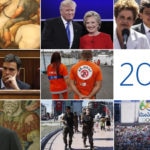
Zika, Spanish, American and Peruvian elections, Dilma Rousseff's impeachment, Mauricio Macri, Juan Manuel Santos, the Olympic Games... Are part of the thirteen milestones that made it to the front pages of newspapers this year:
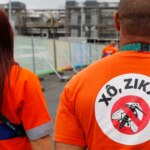
The year got off to a rocky start. It was only January when newspapers started reporting about the level 2 (out of 3) travel alert issued by the U.S. Center for Disease Control over Zika for 14 Latin America countries, recommending pregnant women and women planning to conceive to avoid traveling to these destinations. In February, the WHO issued its first warning about the virus and the potential link to cases of microcephaly among newborns.
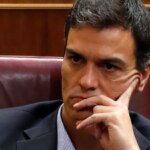
In Spain, the change of Government took quite a few months. Despite claiming victory with 123 seats in the December 20, 2015 elections, in February, Popular Party leader Mariano Rajoy turned down the king’s offer to form new government.
Socialist Party leader Pedro Sánchez signed a deal a deal with Ciudadanos and accepted the king’s request to stand as prime ministerial candidate.
However, for the first time in Spain’s democratic history, the candidate proposed by the King failed to form government after two rounds of investiture.
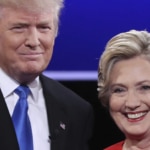
But it was in March when the collective eyes of the world turned to the United States. On March 1, Super Tuesday, 12 states held their primaries or caucuses. That day, more delegates were at stake for the nomination of a U.S. presidential candidate than on any other single day in the presidential primary campaign.
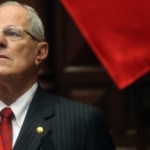
Politics were also one of the hottest topics in April. In Peru, Keiko Fujimori, daughter of former president Alberto Fujimori, dominated the elections with 39.5 % of votes versus 22.1 % by rival Pedro Pablo Kuczynski. The results, however, forced a second round. Finally, on June 5, Pedro Pablo Kuczynski was elected president by an extremely narrow margin, with 50.12% to Fujimori’s 49.88%.
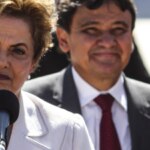
In May, Dilma Rousseff’s impeachment process begun on charges of budget manipulation to conceal de public deficit. The Senate voted to suspend Rousseff for up to six months, pending a decision on whether to remove her from office permanently. Vice-President Michel Temer was appointed interim President. On August 31, Dilma Rousseff was permanently removed from office, and Temer was sworn in as her successor through 2019.
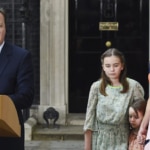
It was in the middle of the year, when one of the most transcendental and surprising events of 2016 took place: the Brexit. On June 23, the U.K. voted on whether to remain or leave the European Union. With 17,176,006 votes to 15,952,444 the “leave” option won over the “Remain”. As a result of the voting, Prime Minister David Cameron resigned and Theresa Main stepped in as his successor.
The result did nothing but increase the uncertainty about the future of both the United Kingdom and the European Union. After months without news about what the United Kingdom’s next steps would be, on December 20, for the first time, Theresa May announced that she would seek a transitional Brexit deal after 2019.
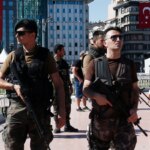
On the night of July 15, a coup attempt was staged in Turkey. The coup failed after hundreds of thousands of Turks poured into the streets to protest.

In August, it was the Rio Olympic Games that grabbed most of the headlines. Once again, the U.S. dominated the event with 121 medals (46 gold, 37 silver and 38 bronze). China and Great Britain, with 70 and 67 medals respectively, completed the Olympic podium.
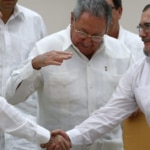
Another one of the highlights of 2016 took place on September 26, when the Government of Colombia and FARC – EP guerilla leaders signed the Peace accords in Cartagena. It was the first attempt ever at trying to bring the 50+ year Colombian conflict to an end.
As stipulated by law, this first Peace accord had to be submitted to a popular plebiscite, so that it could enjoy the legitimacy of a public mandate. On October 2, with 50.2% of votes, the victory of the “no” over the “yes” forced the parties to renegotiate the accord. The final Peace accord was signed on November 24 in Bogota, and was ratified by the Senate and the House of Representatives on November 29 and 30.
As a result of his role in the Peace process, Colombian president Juan Manuel Santos was awarded this year’s Nobel Peace Prize.
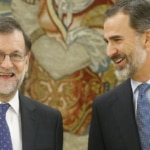
After 10 months of political uncertainty, two elections, and countless negotiations and deals, the Popular Party’s presidential candidate Mariano Rajoy was able to form the new government in October. Thanks to support from Ciudadanos, Coalición Canaria and the controversial abstentions from some members of the PSOE, Spain was able to put an end to its longest-ever political stalemate: 315 days with an Interim Government.
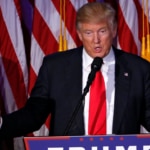
Despite poll forecasts, on November 8, Republican presidential candidate Donald Trump beat Democratic candidate Hillary Clinton and won the U.S. Presidential Elections. Democrats’ watched in disbelief as the night wore on and results from main swing states started rolling in. Donald J. Trump won the Electoral College with 304 votes to 227 votes for Hillary Clinton.

On November 25th, the world awoke to the news of the death of Fidel Castro at 90. The leader of the Cuban revolution died after 47 years at the helm of the socialist regime in Cuba.
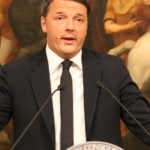
The last month of the year began with the Italian constitutional referendum. President Matteo Renzi said he would resign from his post if the ‘no’ vote won. On December 4, 60% of Italians rejected his constitutional reform proposal. On Monday, December 5, he resigned. Paolo Gentiloni was sworn in to succeed Renzi as new Prime Minister of Italy.